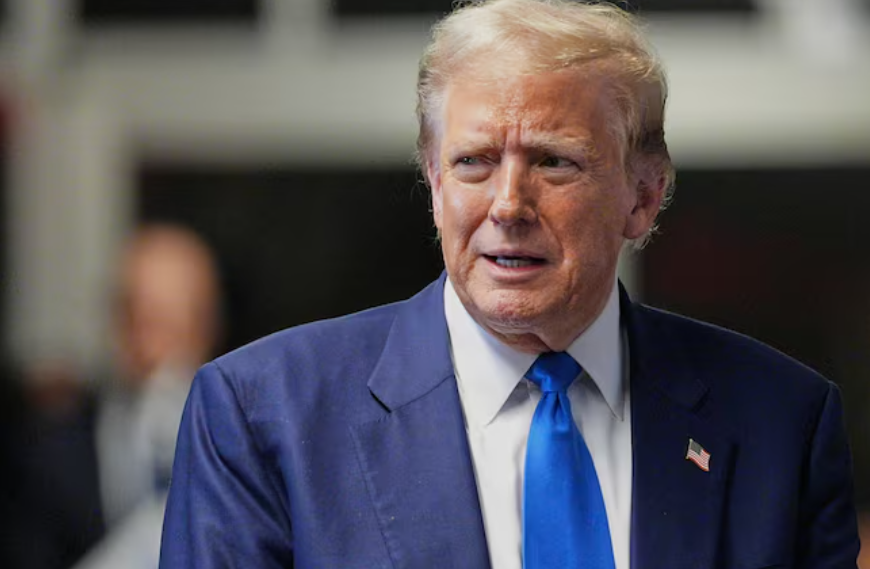On Monday, Justice Juan Merchan fined Donald Trump $1,000 and held him in contempt of court for the tenth time for violating a gag order. Merchan warned that further violations could result in jail time for the former president.
Merchan stated that the $1,000 fines he had previously imposed did not appear to deter Trump from violating the order, which prohibits him from publicly discussing jurors and witnesses in the first criminal trial of a former U.S. president. Merchan emphasized his reluctance to impose jail sanctions but asserted he would do so if necessary.
The trial, arising from a hush money payment to porn star Stormy Daniels in the final weeks of the 2016 election, saw testimony from a former Trump employee following Merchan’s ruling. The employee’s testimony potentially strengthens prosecutors’ allegations that Trump falsified business records to conceal the hush money payment.
Despite Trump’s denial of wrongdoing and pleading not guilty, Merchan labeled his continued, willful violations of the gag order as a direct attack on the rule of law. The tenth $1,000 fine was imposed for remarks Trump made in an April 22 broadcast interview.
Merchan considered jail time as a last resort due to its potential disruption to the trial, security challenges, and complications for the 2024 presidential election, where Trump seeks to reclaim the White House. He highlighted Trump’s statements as undermining the rule of law.
Prosecutors displayed business records documenting payments totaling $420,000 from Trump to his former fixer Michael Cohen. These payments were characterized as legal fees but were intended to reimburse Cohen for his payment to Daniels. Testimony revealed that the payments were considered reimbursements by the Trump Organization.
Prosecutors argued that Trump’s payment to Daniels influenced the 2016 election by concealing information from voters. The altered business records are said to cover up election-law and tax-law violations, potentially elevating the charges against Trump to felonies punishable by up to four years in prison.
The trial, featuring allegations of adultery and secret payoffs, is considered less significant than other criminal prosecutions Trump faces but is expected to conclude before the November 5 presidential election.

